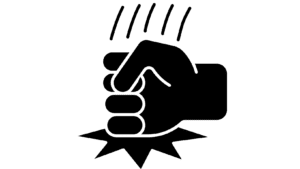Objection: NO!
Customer: (Objections throughout the discussion) “It’s too expensive.” “We’ve never done it before.” “We are fine the way we are.”
Customer: “I want to thank you for coming in here today. You’ve done an impressive job, and I know we’ve put you through the wringer. I appreciate what you’re offering, but I must tell you that we’re just not ready to buy your service at this time.”
Salesperson: “Well, I think perhaps we could continue this discussion next week when you’ve had a chance to understand the benefits of…”
Customer: “No, I don’t think that is necessary.”
Salesperson: “Suppose I email some material and you can talk about how much the program can mean in dollars and cents to your company.”
Customer: (shook his head) “I appreciate your time.”
Salesperson: “Perhaps if we discussed a smaller pilot program …”
Customer: (annoyed) “I thought I made myself clear. We’re not going to agree to the program.”
When no means no
- A firm, unbreakable objection is likely to come from the top executives of a company. When the head of the company says no, they most likely mean it.
- Watch for body language. Someone who wants to impress with the forcefulness of their no is more likely to stand and lean forward. They will look directly at you and speak clearly and firmly.
- To cut off possible avenues for countering their objectives, they’ll anticipate them in advance. Such as, “I realize you’re offering us a great product from the standpoint of price, but we’re not interested.”
- The objection will be presented as an absolute. Not, “We can’t consider your product at this time.” It is “No. Not now. Not in the future. Just no.”
Don’t try to change the customer’s mind currently. First, they don’t want to continue the conversation. Exit quickly without a fuss.
 The customer wants you to respect his ability and authority to make this decision. As you pack up your briefcase, you can acknowledge by saying, “Well, you’re the boss, and while I’m disappointed, you’re the one who gets paid to make those kinds of decisions.” The customer wants the termination of the sales call to be stress free. Keep that in mind. Be professional.
The customer wants you to respect his ability and authority to make this decision. As you pack up your briefcase, you can acknowledge by saying, “Well, you’re the boss, and while I’m disappointed, you’re the one who gets paid to make those kinds of decisions.” The customer wants the termination of the sales call to be stress free. Keep that in mind. Be professional.
There’s always the future:
- Employee turnover. The executive may leave the company to pursue another personal opportunity.
- Industry changes. As the customer’s environment changes, they may reconsider the value of the product.
- Change their mind. If you leave and are very professional, even though he said no. He may reconsider later.
- Others. Other people in the room for the presentation or part of the decision-making team may persuade their coworker that he was mistaken.
The value of a good retreat.
Live to fight another day.  Your careful, executed, and respectful retreat preserves the professional relationship when the customer is ready to buy.
Your careful, executed, and respectful retreat preserves the professional relationship when the customer is ready to buy.
| Client Personality | Client Attitude | Sales Tactic |
Dominant
|
|
|
Influence
|
|
|
Steadiness
|
|
|
Conscientious
|
|
|










